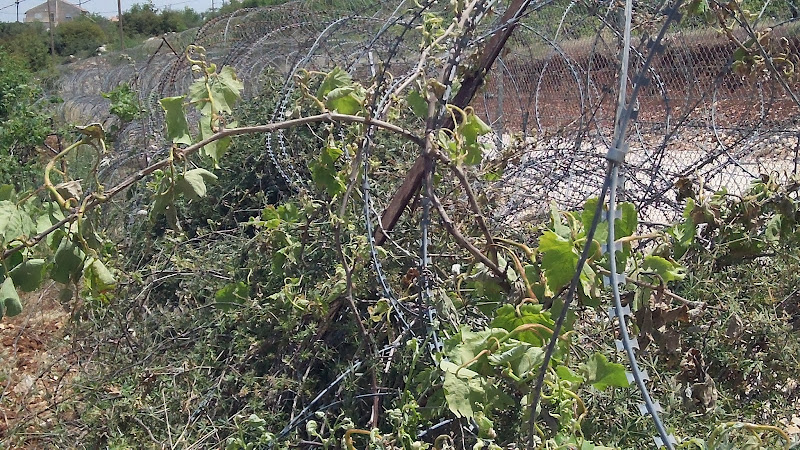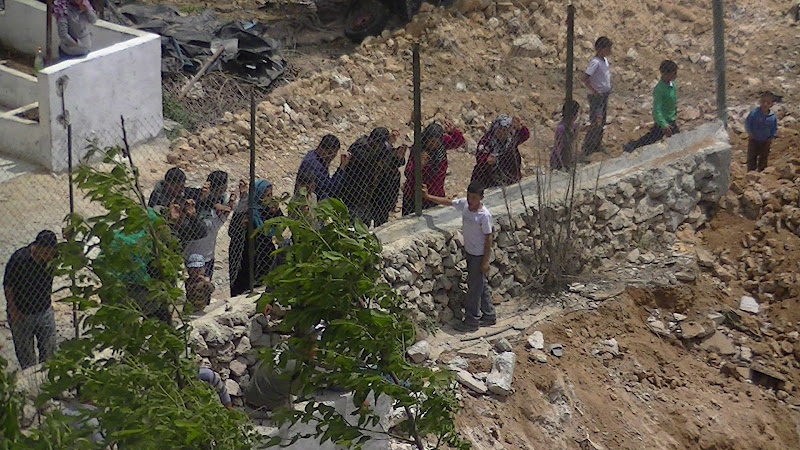Tag: Farmers
-
Between Qaryut and Jaloud: systematic ethnic cleansing
By Maria Erdely 30 May 2012 | International Solidarity Movement, West Bank Derar Ammer’s family has owned the land they live on since 1936. He is in possession of the papers that state that this land and the home his ancestors built on it is rightfully his, which date back to the British mandate. Nevertheless,…
-
Karmei Tsur: Poisoning the vine with Zionism
by Joseph 7 May 2012 | International Solidarity Movement, West Bank When Ali Awad visited his orchard on Friday morning before the midday prayer he noticed nothing out of the usual. But eight hours later, when he returned to his land in order to gather grape leaves to sell in the local market, he…
-
Another water cistern demolished, another violation of Human Rights
by Joseph 3 May 2012 | International Solidarity Movement, West Bank On Wednesday 2nd May 2012, in the town of Al-Baqr, the Israeli occupation forces destroyed yet another water cistern. The water cistern measuring 16 metres in width and length, and 8 metres in height was used to irrigate approximately 40 to 50 dunams of…


